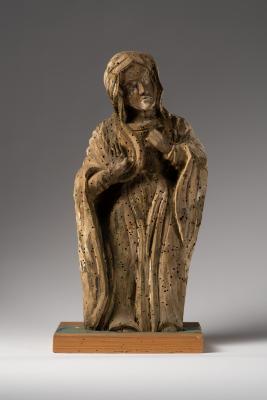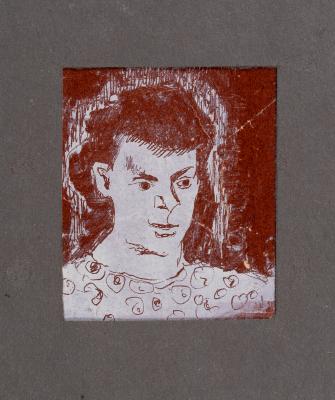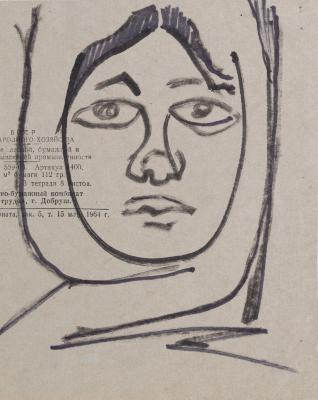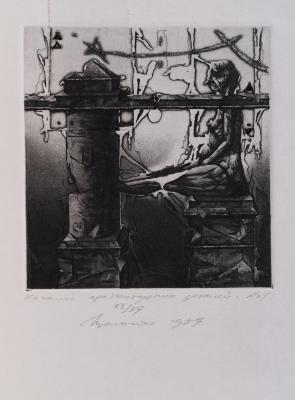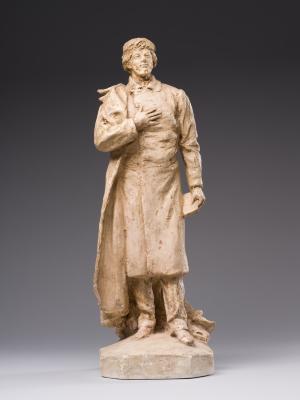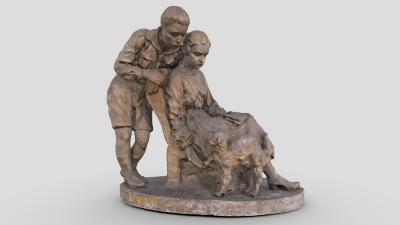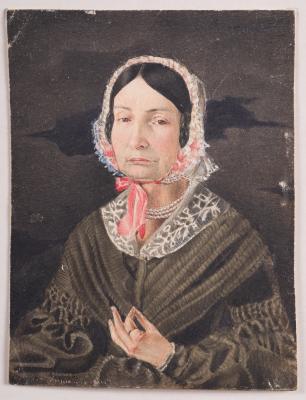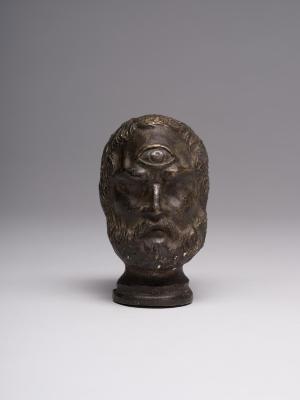The drawings of peasants are characterized by a deep connection with the sacred tradition and a desire to embody the spiritual. The slight tilts of figures, soft and smooth rhythms create an atmosphere of slowness and calm. Motifs taken from everyday life become the embodiment of goodness and inner harmony, as well as assume symbolic meaning. Mykhailo Boichuk taught his students that real art should be "a manifestation of the spiritual quality of both the artist and the people''. In Boichuk's small, seemingly unfinished and sort of accidentally made sketches, in fact, there is a serious search for a new aesthetic canon, a national type, which would originate from the naive works painted by folk artists and develop on the basis of observations of reality with decent restraint and without the sentimental admiration, which is typical of the creative works by stylists. In 1973, this unique exhibit item got into the collection of Lviv National Art Gallery from the private collection of Yaroslava Muzyka, who closely worked with Boichuk and his followers during the Lviv period of the artist's life. Yaroslava Muzyka lived in a house on Charnetskyi Street (now Vynnychenko Street, 26), where Boichuk's studio was located; she managed to preserve a significant amount of archival material and some works that remained after the artist’s moving to Kyiv.












